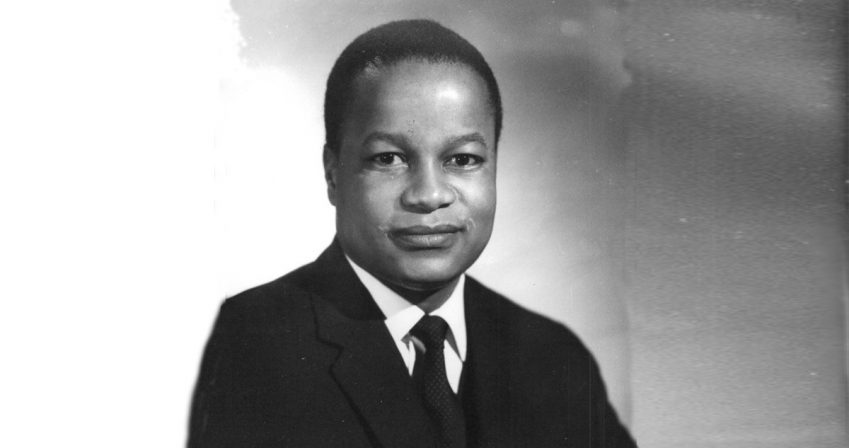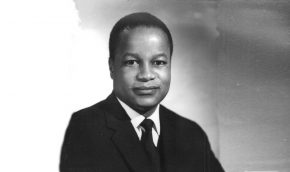Botswana’s first African barrister who made his reputation at London’s famous criminal court, the Old Bailey.
Celebrating Diversity at the Bar
- Introduction
- Diversity Timeline
- Edward Akufo-Addo
- Obafemi Awolowo
- Joyce Bamford-Addo
- Solomon Brandaranaike
- Charlotte Boaitey-Kwarteng
- Joseph Ephraim Casely Hayford
- Eugenia Charles
- S Chelvan
- Thomas Morris Chester
- Learie Constantine
- Edward Cragg Haynes
- Patricia Dangor
- Coomee Rustom Dantra
- Gifty Edila
- Ezlynn Deraniyagala
- Taslim Olawale Elias
- Martin Forde
- Arthur Dion Hanna
- Ma Pwa Hmee
- Alexander Isbister
- Sibghatullah Kadri
- Seretse Kharma
- Moleleki Didwell Mokama
- Tunde Okewale
- Ashitey Ollennu
- Vallabhbhai Patel
- Lily Tie Ten Quee
- Ponnambalam Ramanathan
- Edward Richards
- Khushwant Singh
- Manjiit Singh Gill
- Teo Soon Kim
- Leslie Thomas
- Stella Thomas
- Leonard Woodley
Home › Celebrating Diversity at the Bar › Moleleki Didwell Mokama
Moleleki Didwell Mokama
1933 - 1997
Call 1962, Inner Temple
Moleleki Didwell Mokama, affectionately called ‘MD’ by his friends, was born in 1933 in Botswana. His father was a farmer and the family lived in a small remote village east of Serowe. He was educated at a local primary school; his secondary education was completed at Moeng College and in 1952 he went to study at Tiger Kloof Institution in South Africa (also attended by Seretse Khama).
While awaiting a scholarship he worked as a government clerke in Serowe but since English was requirement for a government grant, he enrolled at Rhodes university obtaining a BA. Mokama then won an Openheimer scholarship to study law at Witwatersrand University in South Africa but the South African government refused him an entry permit into the country. He successfully petitioned the colonial protectorate government for a scholarship to study Law in England, where he was admitted to The Inner Temple in 1959 and called to the Bar in 1962. He was later awarded an LLM degree at Harvard University.


Moleleki Didwell Mokama
Mokama worked in the chambers with Sir Dingle Foot and spent 12 months at the Old Bailey on criminal cases. After completing pupillage, he returned to Botswana where he became the first Botswanan Crown Counsel. After the country gained independence in 1966, he became the first Botswanan High Commissioner to London. He was also ambassador to France, Germany, Sweden, Norway and Denmark. He returned to Gabarone in 1969 and was appointed Attorney General, a post he held until 1992, thus becoming the longest serving attorney general in the Commonwealth.
In his capacity as attorney general, he was an ex-officio member of Parliament and of the cabinet and contributed in no small measure to the development of the law in Botswana. His commitment to the rule of law and human rights earned him an appointment by the Organisation of African Unity (OAU) as one of the first Commissioners under the OAU charter on human rights, a post he held from 1987 to 1993.
In 1992, he was appointed Chief Justice and served in that post until his death in 1997. His judgements still serve as precedents in the Botswanan High Court and some eight years after his death, he was awarded the Presidential Order of Honour.
Amelia Smithers